Table of Contents
Guide
Page List

Courtesy of the author
Eileen Kearney, PhD, has been a leading Irish theatre scholar and director since the 1980s, when her rediscovery of the playwright Teresa Deevy prompted years of publishing and lecturing about bringing Irish women playwrights into the limelight. Currently an instructor of theatre at the University of Colorado Denver, she also taught at Pomona College, the University of Texas at Austin, and Texas A & M University. She has been cited by the Kennedy Center/American College Theater Festival for excellence in directing. Before her academic career, she acted in New York and Los Angeles. She is also an award-winning knitter and weaver of fiber arts in the Irish tradition.

Photo by Ashna Graves, 2012
Charlotte Headrick, PhD, is a professor of theatre at Oregon State University. She has directed numerous Irish plays and premieres of Irish plays nationwide, including several in this volume, as well as the Turkish premiere of My Name Is Rachel Corrie. She has published widely on Irish drama, focusing on plays by women. She is the recipient of the Kennedy Center Medallion for outstanding service to the Kennedy Center/American College Theater Festival. A member of Actors Equity, she continues to act as well as direct.
Acknowledgments
 This book is the result of years of musing, research, and interviews with many generous, cooperative, and patient Irish playwrights, poets, directors, artists, and academics. They have become our treasured Irish friends, and we look forward to buying drinks for all of them someday in Fiddlers Green.
This book is the result of years of musing, research, and interviews with many generous, cooperative, and patient Irish playwrights, poets, directors, artists, and academics. They have become our treasured Irish friends, and we look forward to buying drinks for all of them someday in Fiddlers Green.
First and foremost, we are indebted to Dr. Kathleen Quinn, who began discussions with Eileen Kearney and who contributed immeasurably to the early stages of this book; without her extensive knowledge, research, writing, and curiosity, Irish Women Dramatists would not have been born.
We are appreciative of the enthusiastic support and trust of the editorial staff at Syracuse University Press, especially Glenn Wright, Annelise Finegan, Kay Steinmetz, and Jennika Baines. We are particularly grateful to our persistent, encouraging mentor, Jim MacKillop, who has had faith in this project since its beginning. Go raibh maith agat!
Our debt to the American Conference for Irish Studies, especially members of the Western region, cannot be measured. This wonderful international group of Irish Studies academics continues to feed our souls and encourage scholarly research.
We thank three faculty members of University College Dublin: Professor Anthony Roche for his generous guidance through the years, Professor Christopher Murray for his aid and expertise, and Cathy Leeney, whose Seen and Heard: Six New Plays by Irish Women (2001) began what we hope will become a tradition: the published acknowledgment of Irish women playwrights.
For financial support, Eileen Kearney is grateful to the Center for the Study of Women in Society at the University of Oregon and to Pomona College, Claremont, California, for its early support of this project while she was on its faculty. Charlotte Headrick thanks the Oregon State University Center for Humanities, as well as the Oregon State University Theatre, where she continues to teach and direct.
We honor the memory of poet Sean Dunne, who opened doors for Eileen Kearneys research in Ireland; Jack Deevy, for generously allowing access to Teresa Deevys papers; and Professor Bill Potts, our beloved American Conference for Irish Studies colleague and muse.
We extend our thanks to Emily Janoch, a former Peace Corps volunteer now with CARE International, for her help in the Xhosa translation and to Jacqueline Deevy for her generosity with the Deevy estate.
Eileen Kearney would like to thank her family and friends, whose support has spanned the long life of this volume: her generous husband, Dan Koetting; her parents, Mary Rowan Kearney and John Gordon Kearney; her siblings, Helen, Lori, Joni, Neal, Tim, Nora, Kevin, and Chris; Annora Kelledy Koetting; and her friends Judy Murphy, Cynthia Splatt, Ed Siegler, Drs. Lyla and Mike Houglum, Mary Bettencourt, Linda Lu, Dr. Stephanie Jenal, Linda Van Doren, Martha Heppard, MD, and Peter Eberhardt.
Charlotte Headrick extends special thanks to Dr. Helen Lojek, Dr. Audrey Eyler, and Dr. Claudia Harris.
This book would certainly not be possible without the impeccably detailed copyediting of Mary Petrusewicz and the quiet generosity of our editorial angels, Brwyn Downing and Olivia Lewis. We thank them all for their incomparable assistance; their silent voices have brought this book to fruition.
Last, but certainly not least, we are forever grateful to the pioneering Irish women playwrights Lady Augusta Gregory, Teresa Deevy, Anne Le Marquand Hartigan, Dolores Walshe, Patricia Burke Brogan, Jennifer Johnston, and Nicola McCartney, whose work appears in this anthology. There are so many more whose plays could not be included here, but we highly encourage the publication of subsequent anthologies. The time has come.
Lady Augusta Gregory
(18521932)
 Isabella Augusta Persse was born at Roxborough, County Galway, on March 15, 1852. The twelfth in a family of sixteen children of Protestant landowners, she developed a fiercely independent spirit at an early age, paving the way for her future journey down the theatrically oriented road less traveled.
Isabella Augusta Persse was born at Roxborough, County Galway, on March 15, 1852. The twelfth in a family of sixteen children of Protestant landowners, she developed a fiercely independent spirit at an early age, paving the way for her future journey down the theatrically oriented road less traveled.
While accompanying her invalid brother to the Continent, she met Sir William Gregory, a neighbor from nearby Coole Park. Her 1880 marriage to Gregorya childless widower and retired governor of Ceylon who was more than thirty years her seniorbroadened her horizons in the political, artistic, and social life of Europe. Although they frequently traveled to foreign lands, they divided their time principally between London and Coole. Their only child, William Robert, was born in 1881; his death in World War I was to affect Lady Gregory deeply. Her husband died in 1892, after which she continued to wear mourning clothes the rest of her life.
In 1896 Lady Gregory was introduced to W. B. Yeats, and the rest is Irish theatre history. With Yeats and Edward Martyn, she founded the Irish Literary Theatre in 1899, which evolved into the Irish National Theatre Society and later became the now legendary Abbey. As a driving force in this dramatic and theatrical renaissance, Lady Gregorys strong influence on Yeats, Synge, and OCasey is apparent. She devoted most of the last thirty years of her life to tirelessly working in many capacities with the Abbey, including encouraging new playwrights. She herself was a new (if late-blooming) playwright; her first play Twenty Five premiered in the Irish National Theatre Societys first season in March 1903, one day before her fifty-first birthday.
Of all the women playwrights in Ireland, Lady Augusta Gregory is the name most widely known and recognized. Much has been written about the now legendary leading figure of the Irish Renaissance who, along with W. B. Yeats, John Synge, Douglas Hyde, George Moore, and others, changed utterly the direction of artistic, literary, and dramatic expression in Ireland. Widespread information about her personal life and her multifaceted roles as playwright, folklorist, essayist, poet, translator, editor, director, fund-raiser, and businesswoman is now readily accessible. Lady Gregorys fame and recognition are simultaneously inspiring and disappointing. Although her legacy serves as a veritable role model for the strong voice of womens influence on and contribution to the Irish theatre scene, the fact that she alone appears in most anthologies as the sole Irish women playwright makes her fame a two-edged sword.

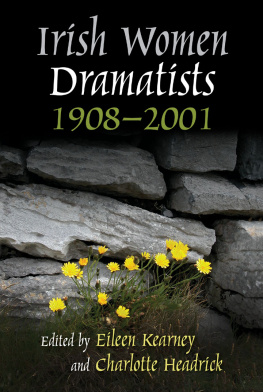


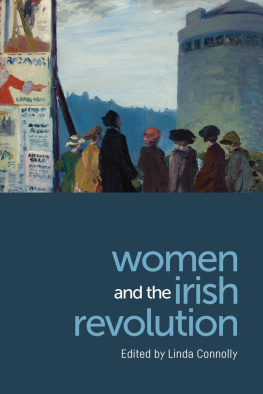
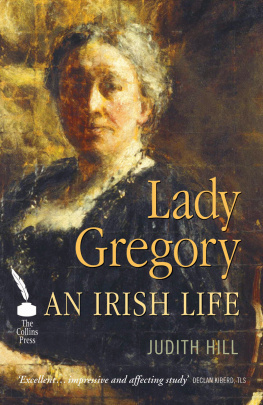
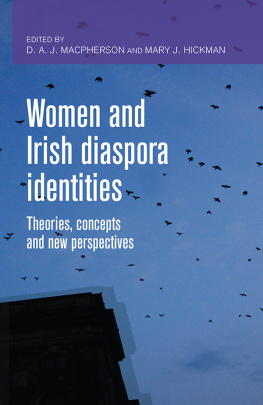
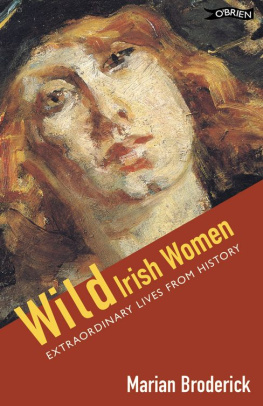
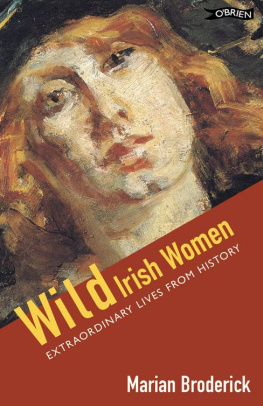


 This book is the result of years of musing, research, and interviews with many generous, cooperative, and patient Irish playwrights, poets, directors, artists, and academics. They have become our treasured Irish friends, and we look forward to buying drinks for all of them someday in Fiddlers Green.
This book is the result of years of musing, research, and interviews with many generous, cooperative, and patient Irish playwrights, poets, directors, artists, and academics. They have become our treasured Irish friends, and we look forward to buying drinks for all of them someday in Fiddlers Green.